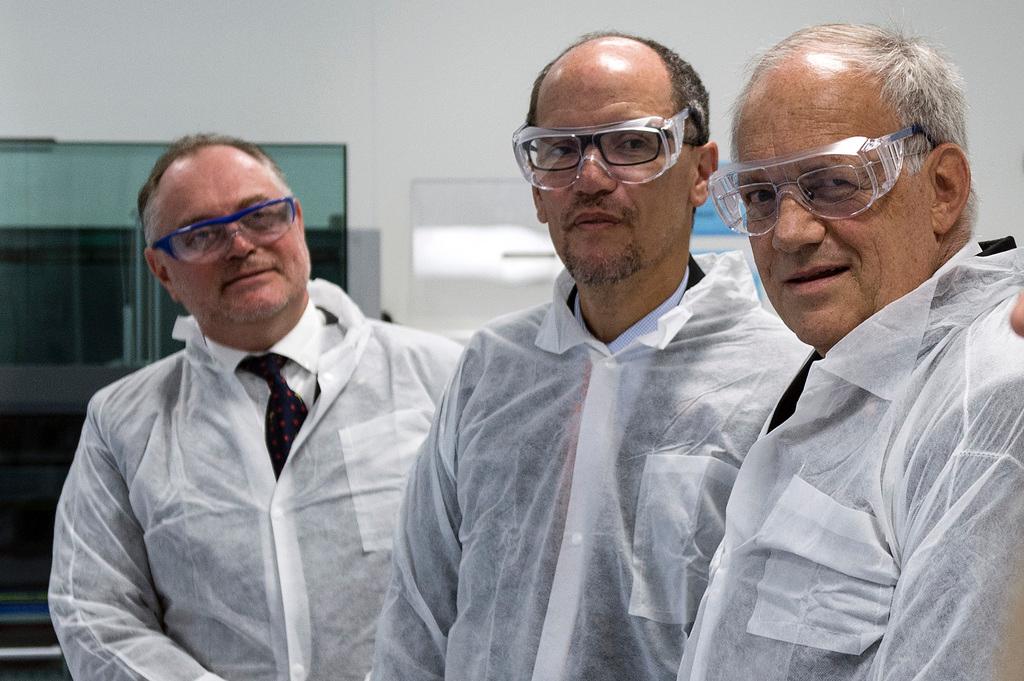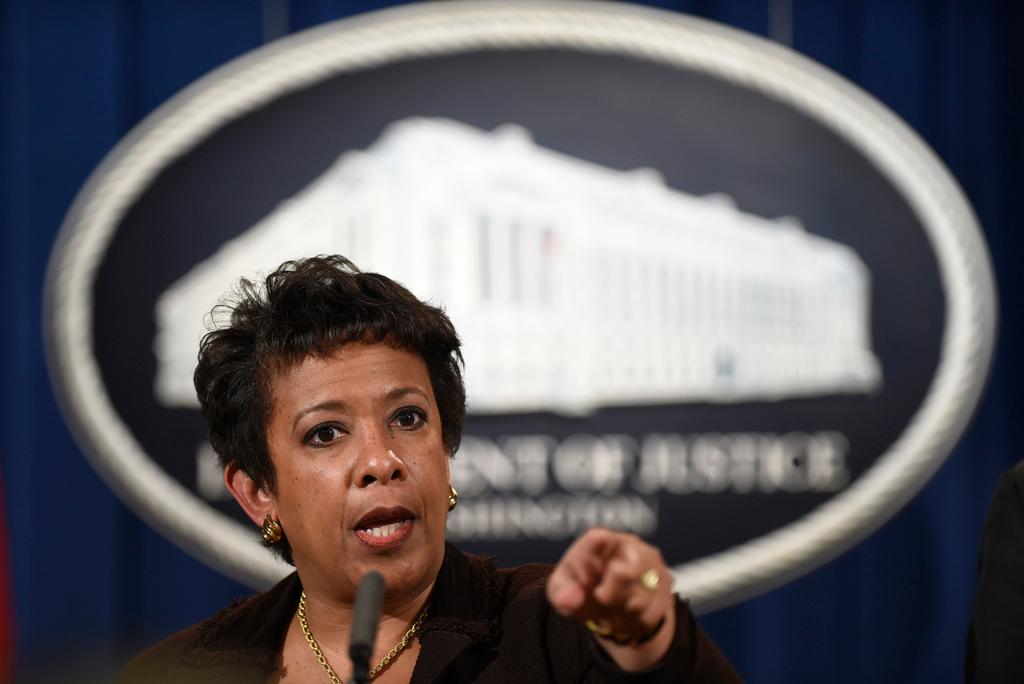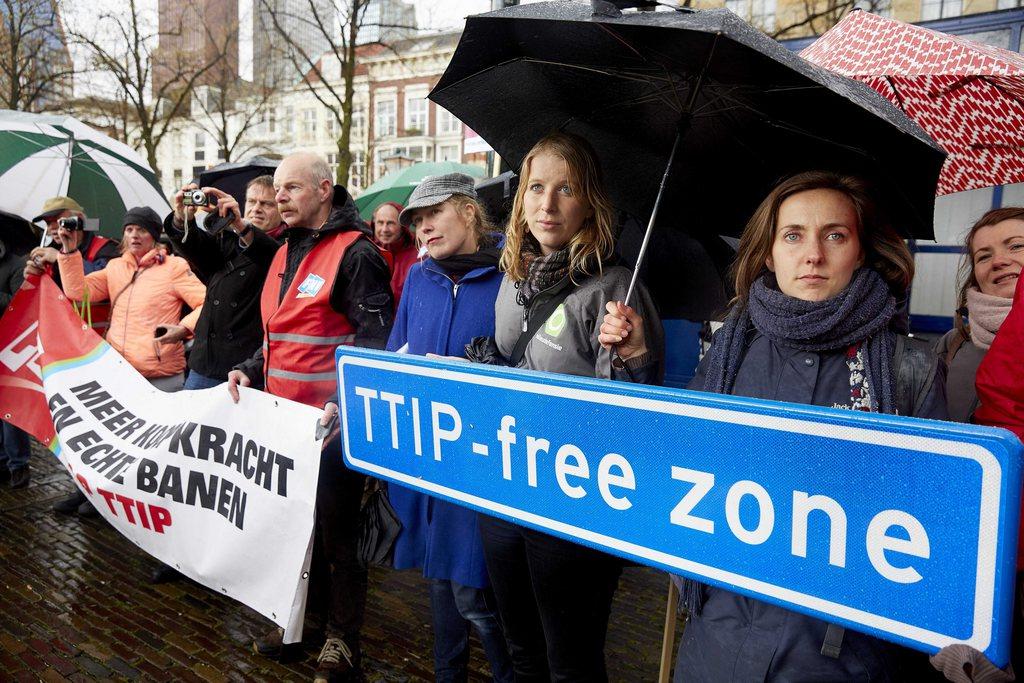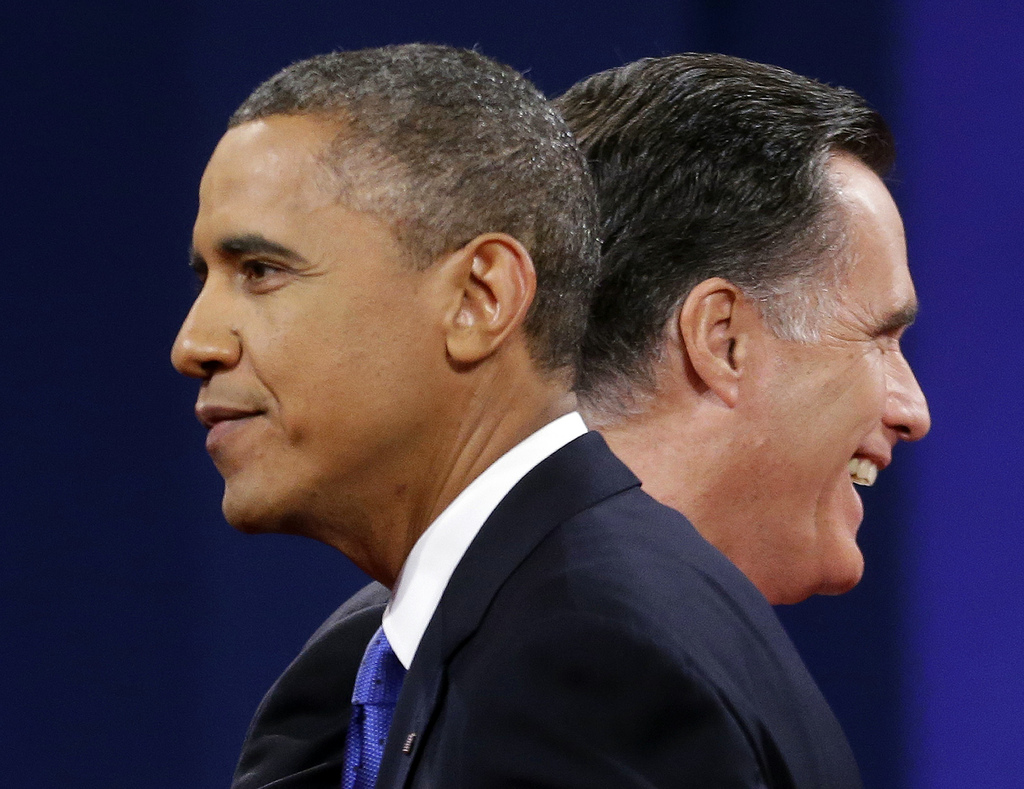US-Swiss ties: business as usual post Obama?

Clinton or Trump: as far as Swiss interests go, it might not matter. Bilateral relations between the two countries have been dominated by trade issues and long-running banking and tax disputes.
Swiss banks – the issue
Around a dozen Swiss banks are still being probed for helping US citizens evade taxes. Could their cases hamper relations under a new president?
Not according to centre-right Radical parliamentarian Christa Markwalder, president of the Swiss Parliamentary Association Switzerland-USA: “The issue has calmed down, even though Swiss parliament didn’t accept the so-called Lex USA [government-sponsored 2013 agreement].”
Roland Büchel, a conservative right Swiss People’s Party MP and president of the House of Representatives Foreign Affairs Committee, also believes the tax dispute is over. He said both countries had ‘turned the page’, adding that relations were in ‘much better shape’.
But Luzi Stamm, also from the People’s Party and a member of the foreign affairs committee, is sceptical: “I’m disappointed with the US about how they put Switzerland and others under pressure. I’ve heard many times in the past that this is a final solution to the [banking and tax dispute] but the discussions start over and over again. You can’t trust the US in that sense.”
Swiss banks – the background
Following a $780 million (CHF762 million) fine for UBS in 2009, the US hit over 80 Swiss banks with penalties totalling over $5 billion in a dispute over tax-dodging American clients. In January 2016, the US Department of Justice finally wound up its ‘Swiss Bank Program’, a diplomatic plea bargain accord finalised in 2013 for Swiss banks with accounts belonging to US tax cheats.
Trade – the issue
Business and trade relations are growing. The US absorbed 13.5% of Swiss products (minus gold and jewelry goods) last year – a rise of 6% in value. By contrast, global Swiss exports fell 2.6% in 2015 and by 5% to Germany, the biggest single market for Swiss goods.
One trade issue that could cast a shadow on future relations is the Transatlantic Trade and Investment Partnership (TTIP), a sweeping US-European free trade deal under discussion. Switzerland is in a ‘holding pattern’, monitoring the talks it cannot directly participate in and waiting to see if it can later join the TTIP. But officials are concerned by possible trading and investment disadvantages.
As the US presidential campaign heats up, protectionist and populist statements made by candidates have worried some Swiss observers.
“We have the impression that the US is a very open trade-friendly country but if you look at specific cases and also during the current campaign you see a movement against opening up markets,” said Markwalder. “I think protectionism is a real problem.”
Trade – Trump or Clinton?
Martin Naville, chief executive of the Swiss-American Chamber of Commerce, is convinced that the positive trading partnership will continue no matter which candidate enters the White House in November.
Hillary Clinton has a proven political track record as both Senator and Secretary of State, and would likely continue Barack Obama’s pro-international business policies, Naville believes. “She is fully aware that this creates jobs and wealth rather than closing down borders to trade,” he told swissinfo.ch.
Unlike some other commentators, Naville is relaxed about the prospect of Donald Trump as president: “There has been a lot of campaign rhetoric from Trump that has alarmed many people, but he does not want to take a big hammer and smash everything up. He may be a loose cannon with his comments, and some people may not like his style, but he is far too pragmatic to want to change the world.”
“Fundamentally, Congress and the Supreme Court have more influence on foreign trade than whoever sits in the White House.”
However, Naville later said that he worries about the “uncertainty” that Trump might create as President, particularly in the field of trade deals. Trump has repeatedly spoken against the proposed Trans-Pacific Partnership (TPP) and appears none too keen on Transatlantic Trade and Investment Partnership (TTIP) negotiations.
“The US political system is very stable, with proper checks and balances, until it comes to trade deals. The President can cancel TTIP, TPP or any other trade deal without needing Congress approval,” Naville said at an event on October 6.
The entry into force of the US Foreign Account Tax Compliance Act (FATCA), requiring financial institutions to share information about Americans’ accounts worth more than $50,000, and other tax evasion legislation, continue to cause headaches for US expats in Switzerland.
“Americans are treated as toxic by Swiss banks (and banks in other non US countries around the world), primarily because of the draconian penalties the US has threatened if the banks do not turn over account information,” said Rick Adams, an American residing in Geneva.
“I know of one American who was to be hired by a Swiss company until the company’s pension provider said “no Americans.” Swiss companies, therefore, are denied the option of hiring talented individuals who happen to have a connection to the US tax system.”
US ambassador to Bern Suzi Levine said Swiss banks such as UBS, Credit Suisse, Vontobel and Commerzbank had been persuaded to accept US clients and to not make decisions based on citizenship. “We believe that over time more and more banks will join up,” she added.
Vocational training – the issue
The Obama administration has embraced the idea of vocational training and apprenticeships and sought help from the Swiss to try to double the number of young people taking up schemes. Last September, both countries signed a joint declaration of intent – an agreement to work together, sharing knowledge on work-based learning.
At the second International Conference on Vocational and Professional Education and TrainingExternal link in Winterthur last month, Chris Lu, US Deputy Secretary of Labour, thanked Switzerland, describing the agreement as a ‘historic commitment to work with our counterparts who wrote the book on apprenticeships’. Swiss firms such as Nestlé, Bühler and Zurich Insurance have been actively promoting apprenticeships in the US.
Vocational training – moving forward
US ambassador to Bern Suzi Levine believes Switzerland has the best apprenticeship model that could be adapted for the US. She admits it is difficult to know how things will move forward under a new administration but says there is ‘tremendous bipartisan support’ for US apprenticeship plans.
Intellectual property
One issue that may rear its ugly head is the protection of intellectual property. Although Switzerland is adapting its laws, the Office of the United States Trade Representative backed by the US music and film lobby and members of Congress insisted that Switzerland be added to a US government watch list this year. US copyright holders claim to have been prevented from enforcing their rights against online infringers and the US believes Switzerland has become an increasingly popular host country for websites with pirated music, films and video games.
Intellectual property – tough Trump?
Some observers have raised eyebrows that the Office of the United States Trade Representative added IP-rights defender Switzerland to a watch list alongside countries like Brazil, Canada and Turkey in its latest “Special 301 Report on Protection of American Intellectual Property Rights Across the WorldExternal link”. According to the Intellectual Property Watch online publication, the report and watch list is more of an agenda for engagement but ‘in rare cases could extend to trade sanctions’. But in a widely-commented speech on the economy last month, Trump threatened to use ‘every lawful presidential power to remedy trade disputes’.
Between 1700 and 2015, about 460,000 Swiss citizens emigrated to the US. The number of Americans with Swiss origin is estimated to be around one million. In 2015, 80,218 Swiss citizens are living in the US, i.e. about 10% of all Swiss abroad.
In the 19th century, a relationship of friendship developed between the two “sister republics” – Switzerland and the US – on the basis of shared values such as democracy, the rule of law and respect for human rights.
In 1822, Switzerland opened its first consulates in the US, in Washington and in New York. Sixty years later, the opening of the Swiss embassy in Washington marked Switzerland’s first embassy outside Europe.
For the past few decades, Switzerland has provided ‘good offices’ (diplomatic mediation and facilitation efforts), representing the interests of one state in the other – the US in Cuba (and vice versa), Iran in Egypt, the US in Iran, as well as Russia in Georgia (and vice versa).
“Switzerland is known for its deep commitment to solving complex global problems. And it always helps out,” declared US Secretary of State John Kerry in January, as he thanked the Swiss efforts in hosting ongoing negotiations with the Iranian delegation over a deal to curb Tehran’s nuclear programme.
(Source: Swiss foreign ministry)

In compliance with the JTI standards
More: SWI swissinfo.ch certified by the Journalism Trust Initiative






You can find an overview of ongoing debates with our journalists here . Please join us!
If you want to start a conversation about a topic raised in this article or want to report factual errors, email us at english@swissinfo.ch.